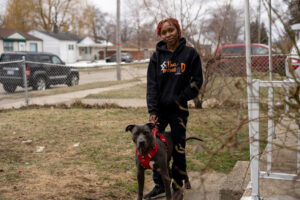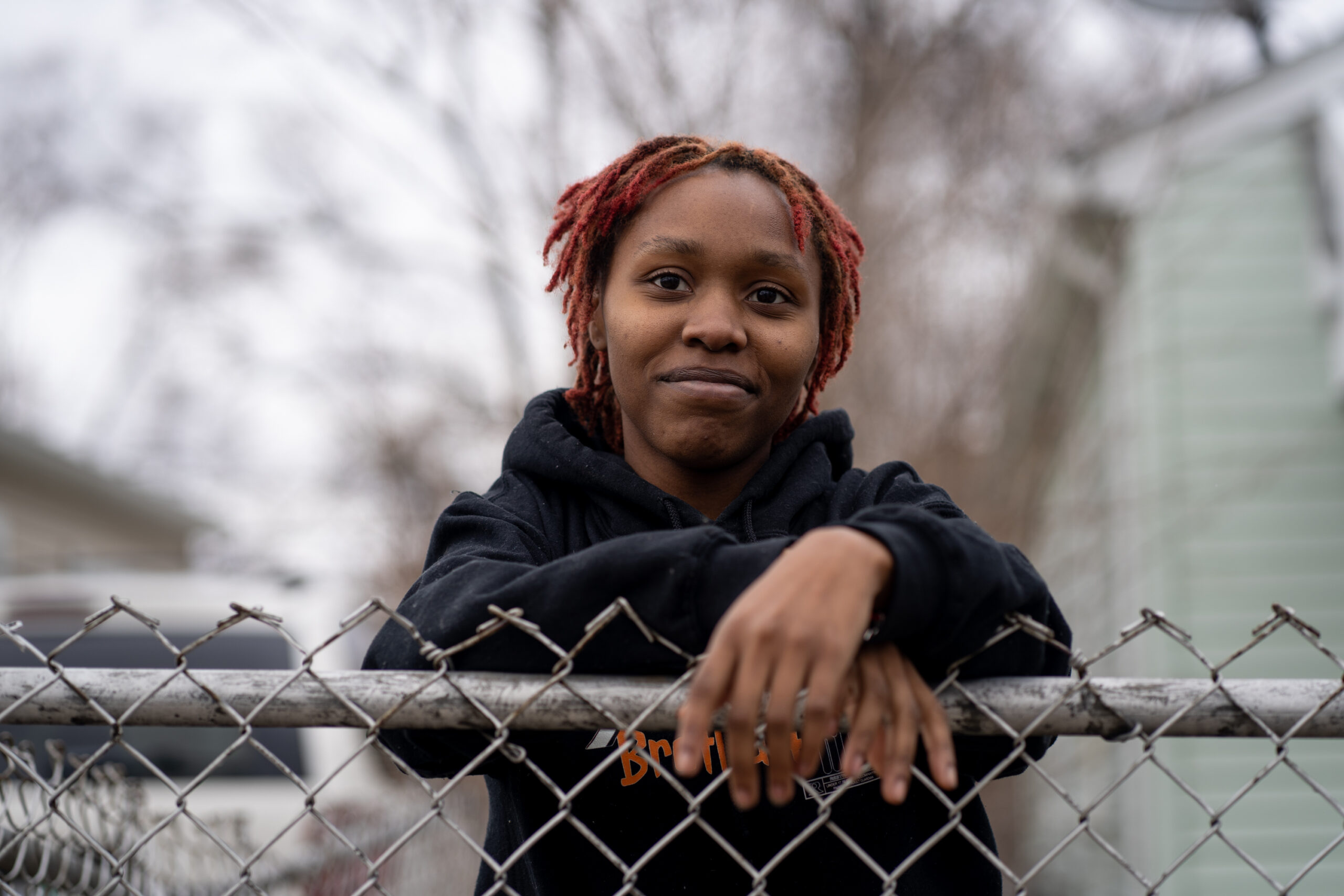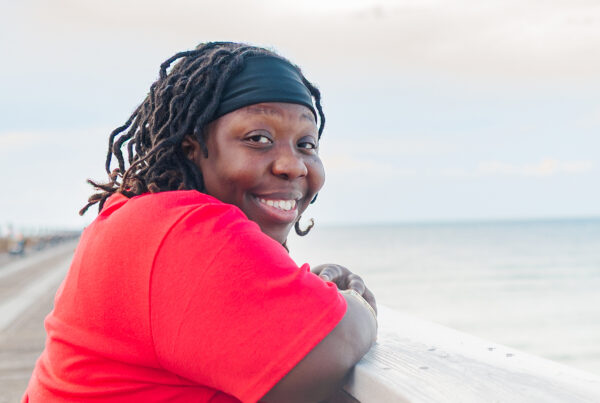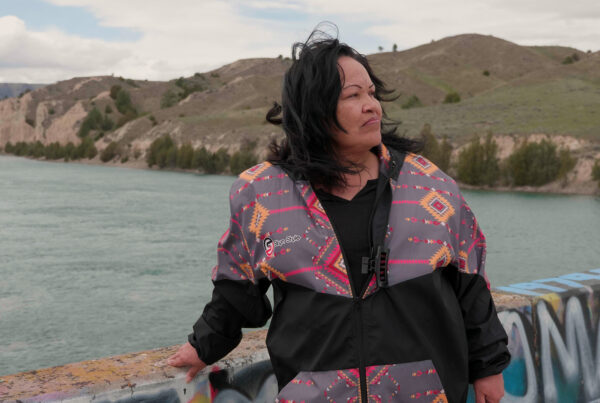March is Women’s History Month, and Sarah, a former client of The Bail Project, makes a point to listen to music by Missy Elliot and Rihanna and read Black women writers, such as poet and civil-rights activist Maya Angelou, science-fiction novel writer Jessica Cage, and playwright Liza Jessie Peterson, as an act of remembrance and reverence. Sarah admires these female iconoclasts who led the way for countless women after them.
“Maya Angelou did more for little Black girls than I can imagine,” Sarah said. “She was a pillar in her community. She fought against every single [obstacle]. And in the midst of her fighting remained in her feminine energy.”

Like the artists and authors she adores, Sarah, a 20-year-old full-time college student in Detroit, is a passionate leader devoted to bettering her community. She encourages her peers to support criminal justice reform, emphasizes the importance of voting in elections and encourages participation in local politics.
“Women my age give me hope,” Sarah said, referring to Gen Z’ers like her, who have grown up during a period of tremendous uncertainty and upheaval caused by the pandemic, racial justice movements and hyperpolarized politics. “We don’t view each other as competition. We lift each other up.”
Women, particularly Black women in America, continue to face incredible obstacles and disparities. Black women are an integral part of the workforce, but because of enduring inequities in education and the labor force, they earned just 70% as much as white men last year. Health disparities continue to persist and Black women are three times more likely to die from pregnancy-related causes than white women. Politics is more partisan than ever, with bills being advanced to ban race-based discussions in classrooms, and this has troubled Sarah. “Black women aren’t taken seriously enough,” Sarah said during an interview with Bail Project staff. “We are not heard. We are not protected.”
Staff from The Bail Project first met Sarah during the height of the COVID-19 pandemic in 2020, when she was being held on $7,500 bail that neither she nor her family could afford. She was 17-years-old and detained in an adult jail. To stop COVID’s spread, jail administrators kept her in solitary confinement for nearly three months with almost no physical contact, despite its known harms to minors. “I had never felt so lonely,” Sarah said.
Within days of learning about Sarah’s incarceration, The Bail Project paid to have her released. Relieved of the pressure to take a plea deal to escape terrible jail conditions, Sarah was able to defend her case from home. She went on to complete her senior year of high school and enrolled in college.

Each year, the National Women’s History Alliance designates a yearly theme for Women’s History Month. This year’s theme is dedicated to women storytellers. Sarah is a natural storyteller. Last month, she spoke about bail reform on a panel organized by the nonprofit advocacy group Safe and Just Michigan. In recent years, she spoke at other public events, hoping that by sharing her life story, she can help raise awareness about challenges women face when they come into contact with the criminal legal system.
“I’ve never been a bystander. I’ve never been able to just watch something happen and not do something about it,” Sarah said. “I went through what I went through to learn. And if I can teach people, then that’s what I’m here to do.”
The years after Sarah’s release weren’t all easy. She struggled to find work, leading to periods of homelessness. Economic pressures forced her to take two years off from college. Despite the challenges she faced, Sarah remained committed to her goals. Today, Sarah is excited about what her future holds. She enjoys the classes she’s taking, and she’s thankful for her two full-time jobs and is learning more about herself through therapy. She’s planning to move into her first apartment. In the coming years, Sarah wants to highlight her personal experience and plans to start a nonprofit to support high school students so that she can inspire the next generation of thought leaders, writers and artists.
”I want to let people know that it’s okay to go through what I went through and that there is light at the end of the tunnel,” Sarah said.
Thank you for reading. The Bail Project is a 501(c)(3) nonprofit organization that is only able to provide direct services and sustain systems change work through donations from people like you. If you found value in this article, please consider supporting our work today.











